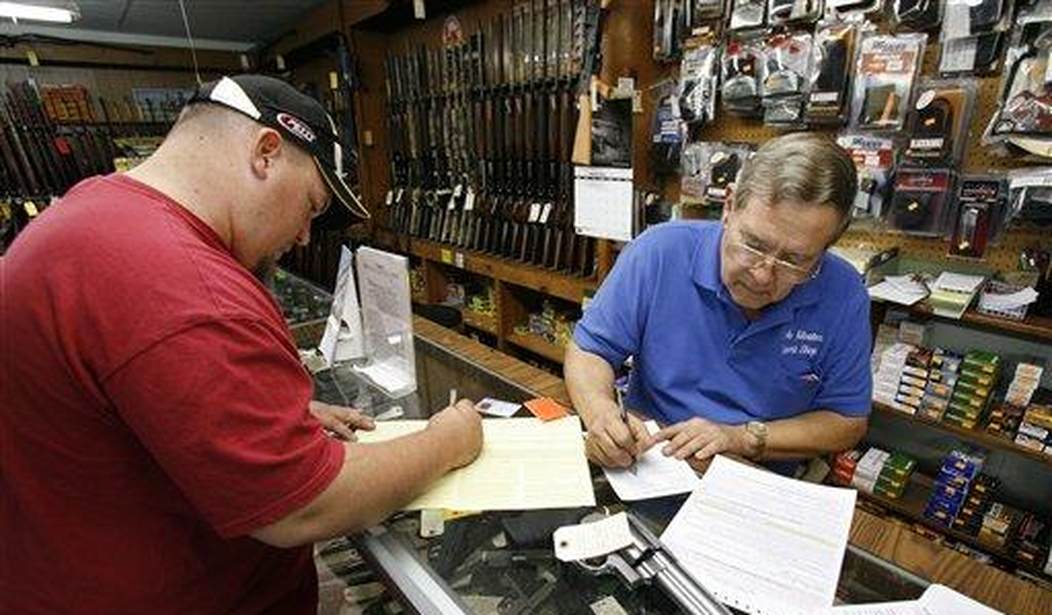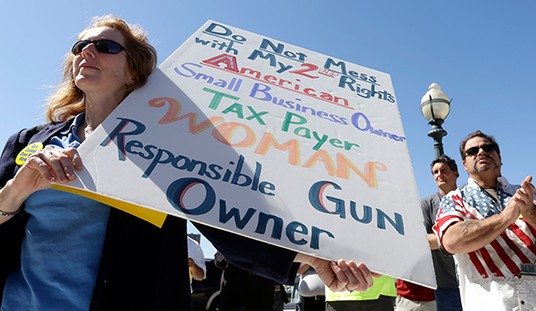There are a lot of reasons to oppose gun registration or, really, any program where the government collects electronic data on gun owners. We could go on ad nauseum about them, but that’s not really here nor there. You know the big ones.
However, yet another reason to take issue is the way the government can’t really be trusted with gun owner data.
The federal government has rarely made a habit of covering itself in glory, but in recent weeks it seems determined to engender mistrust among the American public. In only the last month, three fresh examples of the federal government’s inability to secure sensitive data have come to light. These examples of official incompetence have once again made clear that the federal government cannot be trusted with gun owner data.
Federal bureaucrats and gun control advocates have made clear that they want the government to maintain more information on firearms and firearm owners. ATF routinely whines about how the out-of-business dealer records (4473s) housed at the National Tracing Center have not been converted into a digitized searchable format. ATF director nominee and paid gun control lobbyist David Chipman has called for the federal registration of tens of millions of commonly-owned semi-automatic firearms.
…
In June, NRA-ILA directed gun owner attention to an Internal Revenue Service leak of the private tax returns of several wealthy Americans. The incident proved that political actors within the federal government will break the law by leaking sensitive information in order to advance an ideological goal. Given the political debate surrounding firearm ownership, gun owners could expect similar malicious treatment were the government empowered to collect firearm data.
The latter half of summer has only bolstered this thesis.
On August 16, a security researcher posted an item to Linkedin.com in which he explained how he “discovered a terrorist watchlist containing 1.9 million records online without a password or any other authentication required to access it.”
According to the researcher,
The watchlist came from the Terrorist Screening Center, a multi-agency group administered by the FBI. The TSC maintains the country’s no-fly list, which is a subset of the larger watchlist. A typical record in the list contains a full name, citizenship, gender, date of birth, passport number, no-fly indicator, and more.
As NRA-ILA and the American Civil Liberties Union have repeatedly pointed out, the terrorist watchlist is rife with inaccuracies and inclusion on the list occurs without due process and bears little relation to the threat an individual might pose. Expressing a similar understanding, the security researcher noted, “The terrorist watchlist is made up of people who are suspected of terrorism but who have not necessarily been charged with any crime. In the wrong hands, this list could be used to oppress, harass, or persecute people on the list and their families.”
On August 21, Fox News reported that the State Department was hit by a cyber attack. According to the news outlet’s source, “The State Department is the latest to fall victim to a cyber-attack and notifications of a possible serious breach were made by the Department of Defense Cyber Command.”
The federal government can’t protect the terrorist watchlist from being taken. What on Earth makes anyone believe they’d be able to protect gun owner data.
That is if they even wanted to.
I mean, let’s be real here. They can’t keep important data secure. Would they consider gun owner data important enough to even put forth much of an effort?
And that’s leaving out the tinfoil-hat idea that they might want that data to be stolen in hopes that it might lead to increased gun thefts, which could be used to justify tougher gun control laws. I honestly don’t think the federal government is competent enough to actually plan this out and have it actually work.
The truth of the matter is that there’s no reason to trust the ATF to keep the data secure when no one else in government seems to be able to do so.
So yeah, let’s keep that data hardcopy. That’s much harder to hack, after all.









Join the conversation as a VIP Member